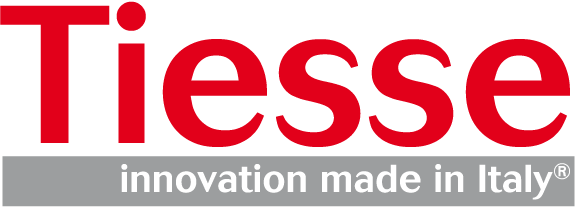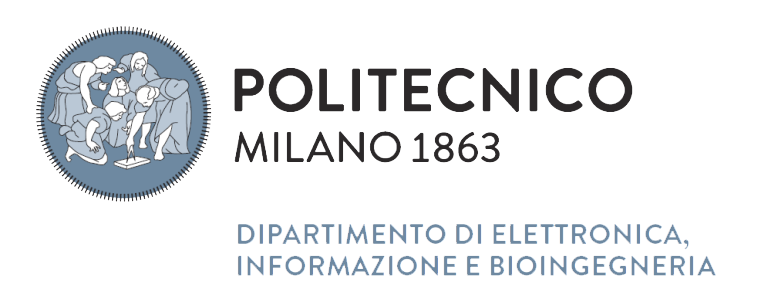Network Softwarization Coming of Age: New Challenges and Opportunities
Enterprise networking services are increasingly moving to the cloud, network automation and gaining operational insights are top-of-mind for network providers, and new services demand stringent service-level guarantees are emerging. All of this is happening while the number of interconnected entities, the volume of traffic, and the dependence of our society on networking services continue to grow unabatedly.
These trends require management technology to go beyond keeping pace – the bar to enable the seamless operation of modern networks. Networks must be softwarized to meet current demands – to roll out and deploy new services, avoid disruptions, protect against abuse, and improve networking economics.
What are the implications on the network softwarization field, and what specific opportunities and challenges are ahead of us?
This panel will explore those opportunities and challenges that are expected to arise. The panel will be structured along the following statements, each allowing exploration of a distinctive aspect:
- The next step in network softwarization is replacing the control plane with some form of AI.
- Network softwarization leads to a naïve reliance on automated tools (including AI/ML systems); there will eventually be some backlash towards integrated hardware.
- Low-latency services need special attention in sofwarized networks.
- Softwarized networks require special management of security and privacy.
Panelists
- Barbara Martini, Universitas Mercatorum, Italy
- Paolo Costa, Italtel, Italy
- Jeff Tantsura, Microsoft, USA
- Diogo Menezes Ferrazani Mattos, Universidade Federal Fluminense, Brazil
Biographies
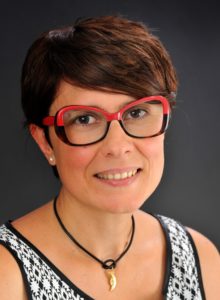 Dr. Barbara Martini is a Professor at Universitas Mercatorum in Software Engineering (ING-INF/05), Italy since January 2022 and Affiliate Researcher with Scuola Superiore Sant’Anna, Italy, since 2003. After her Master Degree at University of Florence in Electronic Engineer, she worked as software designer, developer and product integrator for two large telco companies, Italtel and Marconi Communications (currently, Ericsson), from 1999 to 2003. She was with the Italian University Consortium for Telecommunication (CNIT) from 2003 to 2022 with leading roles from 2009, coordinating research activities in the field of network virtualization and orchestration in 5G, network control/management architectures and programmability, service platforms for networking, and security solutions for multi-domain networks and NFV deployments. The research is carried out in several application scenarios, from Logistics, Genomics to E-health, to name a few. Prof. Barbara Martini co-authored over 100 papers in top-notch scientific journals and international conference proceedings.
Dr. Barbara Martini is a Professor at Universitas Mercatorum in Software Engineering (ING-INF/05), Italy since January 2022 and Affiliate Researcher with Scuola Superiore Sant’Anna, Italy, since 2003. After her Master Degree at University of Florence in Electronic Engineer, she worked as software designer, developer and product integrator for two large telco companies, Italtel and Marconi Communications (currently, Ericsson), from 1999 to 2003. She was with the Italian University Consortium for Telecommunication (CNIT) from 2003 to 2022 with leading roles from 2009, coordinating research activities in the field of network virtualization and orchestration in 5G, network control/management architectures and programmability, service platforms for networking, and security solutions for multi-domain networks and NFV deployments. The research is carried out in several application scenarios, from Logistics, Genomics to E-health, to name a few. Prof. Barbara Martini co-authored over 100 papers in top-notch scientific journals and international conference proceedings.
She has been involved in several national/EU research projects, the recent ones 5GPPP 5GEx, 5GTRANSFORMER, 5GROWTH in 5G/SDN/NFV, ICONET in Physical Internet for Logistics, and in several FIRE projects (OFELIA, Fed4FIRE+, TRIANGLE, 5GINFIRE) with leading roles.
Her experience spent in both academic institutions and large industrial companies gave her the opportunity to acquire a deep technical knowledge and at the same time a broad view over the subject and to foster an effective synergies between the major ICT companies and the most representative Research Centers in telecommunications that was essential to pursue innovative research results as well as to maximize the impact of my research in terms of technology developments and applications.
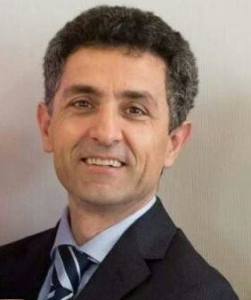 Dr. Paolo Crosta joined Italtel in 1996, where he had the opportunity to gain, with different roles and increasing responsibilities, valuable experience in technical, management and financial areas.
Dr. Paolo Crosta joined Italtel in 1996, where he had the opportunity to gain, with different roles and increasing responsibilities, valuable experience in technical, management and financial areas.
Today, he manages the entire R&I process of the Company, from public incentives until market innovation, passing through partner networking, concept generation, project management, prototyping, up to dissemination and exploitation.
Dr. Paolo Crosta started leading his first R&D team in 2004. In 2012 he started his journey in the international arena of R&I, revitalizing Italtel’s activities in collaborative R&I projects in Italy and in Europe, expanding Italtel’s R&I ecosystem. In 2017, he was appointed responsible also for the financial aspects of R&I projects.
Dr. Paolo Crosta built extensive expertise on various ICT topics, starting from Cloud Computing, Next Generation Networks (5G/6G, Edge Computing) and network softwarization technologies (NFV, SDN), passing through High Performance Computer and Internet-of-Things (IoT), up to Big Data, Artificial Intelligence and Cybersecurity.
His interests are focused on the following market sectors: Telecommunications, Industry 4.0, Smart City, Healthcare, Transportation, Energy and Cybersecurity.
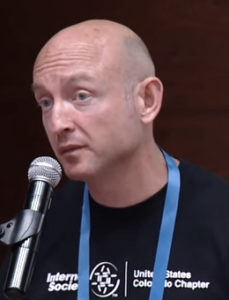 Jeff Tantsura has been in the networking space for 25+ years and has authored/contributed to many RFC’s and patents, worked in both, SP and vendor environments. He is co-chair of IETF Routing Working Group, chartered to work on New Network Architectures and Technologies, including protocol independent YANG models and Next Gen Routing Protocols as well as co-chair of RIFT (Routing in Fat Trees) Working Group chartered to work on the new routing protocol that specifically addresses Fat Tree topologies typically seen in the Data Center environment. Currently, Jeff is Sr. Principal Network Architect Azure Networking at Microsoft, working on the Next Gen DC architectures and ML/AI networking.
Jeff Tantsura has been in the networking space for 25+ years and has authored/contributed to many RFC’s and patents, worked in both, SP and vendor environments. He is co-chair of IETF Routing Working Group, chartered to work on New Network Architectures and Technologies, including protocol independent YANG models and Next Gen Routing Protocols as well as co-chair of RIFT (Routing in Fat Trees) Working Group chartered to work on the new routing protocol that specifically addresses Fat Tree topologies typically seen in the Data Center environment. Currently, Jeff is Sr. Principal Network Architect Azure Networking at Microsoft, working on the Next Gen DC architectures and ML/AI networking.
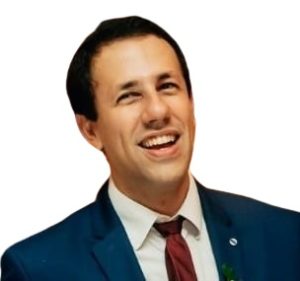 Diogo Menezes Ferrazani Mattos is a professor at the Department of Telecommunications Engineering in the Universidade Federal Fluminense (UFF), Niterói, Brazil. He holds a doctorate in Electrical Engineering from the Universidade Federal Rio do Janeiro (COPPE / UFRJ), 2017. Between 2015 and 2016, he was a sandwich doctoral fellow at the Laboratoire d’Informatique de Paris 6 (LIP6) at the Université Sorbonne, campus Pierre et Marie Curie, Paris, France. He completed his Master’s Degree in Electrical Engineering at COPPE/UFRJ in 2012 and received a “Magna cum Laude” Engineer Degree in Computer and Information Engineering from UFRJ in 2011. In 2017, he was a postdoctoral fellow in the Electrical Engineering Program at the Universidade Federal do Rio de Janeiro. His research interests include network security, next-generation networks, and Future Internet applications.
Diogo Menezes Ferrazani Mattos is a professor at the Department of Telecommunications Engineering in the Universidade Federal Fluminense (UFF), Niterói, Brazil. He holds a doctorate in Electrical Engineering from the Universidade Federal Rio do Janeiro (COPPE / UFRJ), 2017. Between 2015 and 2016, he was a sandwich doctoral fellow at the Laboratoire d’Informatique de Paris 6 (LIP6) at the Université Sorbonne, campus Pierre et Marie Curie, Paris, France. He completed his Master’s Degree in Electrical Engineering at COPPE/UFRJ in 2012 and received a “Magna cum Laude” Engineer Degree in Computer and Information Engineering from UFRJ in 2011. In 2017, he was a postdoctoral fellow in the Electrical Engineering Program at the Universidade Federal do Rio de Janeiro. His research interests include network security, next-generation networks, and Future Internet applications.
Distinguished Expert Panel Co-Chairs
- Filip De Turck, Ghent University, Belgium
- Russ White, Juniper, USA
Biographies
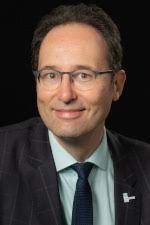 Prof. Filip De Turck is a Full Professor at the Department of Information Technology (Intec) of Ghent University with expertise in communication software, network resource management, adaptive service delivery and efficient large scale data processing. He is currently (co-)author of over 700 publications. He serves in the Editorial Board of several network and service management journals, and is Editor-in-Chief of IEEE Transactions on Network and Service Management (TNSM), and steering committee member of the IEEE/IFIP Network Operations and Management Symposium (NOMS), the IFIP/IEEE Integrated Network Management (IM) Symposium, the IEEE Conference on Network Softwarization (IEEE NetSoft) and the IFIP/IEEE Conference on Network and Service Management (CNSM). He also served as chair of the IEEE SDN Initiative Conference Committee, which coordinates initiative IEEE events and conferences on Softwarized Networks. He received the IEEE ComSoc Dan Stokesberry Award 2021 for particularly distinguished technical contributions to the growth of the network operations and service management field.
Prof. Filip De Turck is a Full Professor at the Department of Information Technology (Intec) of Ghent University with expertise in communication software, network resource management, adaptive service delivery and efficient large scale data processing. He is currently (co-)author of over 700 publications. He serves in the Editorial Board of several network and service management journals, and is Editor-in-Chief of IEEE Transactions on Network and Service Management (TNSM), and steering committee member of the IEEE/IFIP Network Operations and Management Symposium (NOMS), the IFIP/IEEE Integrated Network Management (IM) Symposium, the IEEE Conference on Network Softwarization (IEEE NetSoft) and the IFIP/IEEE Conference on Network and Service Management (CNSM). He also served as chair of the IEEE SDN Initiative Conference Committee, which coordinates initiative IEEE events and conferences on Softwarized Networks. He received the IEEE ComSoc Dan Stokesberry Award 2021 for particularly distinguished technical contributions to the growth of the network operations and service management field.
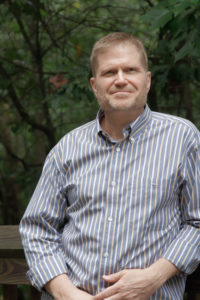 Dr. Russ White is an Infrastructure Architect at Juniper Networks, USA. Before joining Juniper Networks, he was affiliated with LinkedIn, USA as Infrastructure Architect. He holds a Ph.D. in philosophy from Southeast Baptist Theological Seminary, an MACM from Shepherds Theological Seminary, and an MSIT from Capella University.
Dr. Russ White is an Infrastructure Architect at Juniper Networks, USA. Before joining Juniper Networks, he was affiliated with LinkedIn, USA as Infrastructure Architect. He holds a Ph.D. in philosophy from Southeast Baptist Theological Seminary, an MACM from Shepherds Theological Seminary, and an MSIT from Capella University.
Russ began working with computers in the mid-1980’s, and computer networks in 1990. He has experience in designing, deploying, breaking, and troubleshooting large scale networks, and is a strong communicator from the white board to the board room. He has co-authored more than forty software patents, participated in the development of several Internet standards, helped develop the CCDE and the CCAr, and worked in Internet governance with the Internet Society. Russ has a background covering a broad spectrum of topics, including radio frequency engineering and graphic design.
Russ is a co-host of the Hedge podcast, serves on the Routing Area Directorate and the Internet Architecture Board at the IETF, co-chairs the BABEL working group, and serves on the Technical Services Council/as a maintainer on the open source FR Routing project. His most recent works are Computer Networking Problems and Solutions and Unintended Dystopia. Russ regularly teaches live webinars on Internet technology through Safari Books Online, as well.







